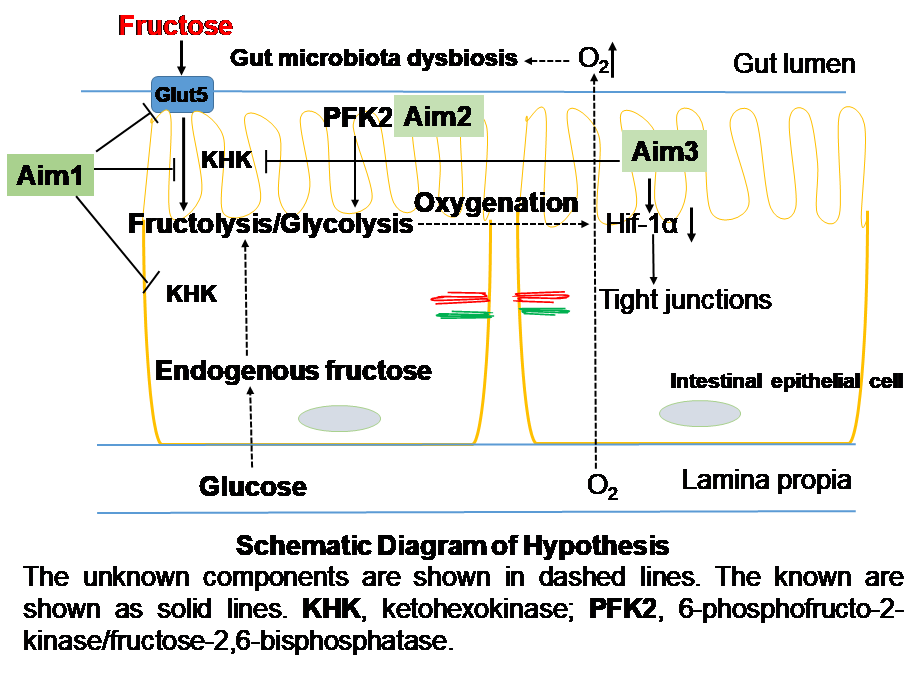Metabolic effect of fructose in intestine induces gut microbiota dysbiosis
Overview:
Emerging evidence has demonstrated that gut microbiota dysbiosis plays a causative role in the development of obesity, type 2 diabetes and NAFLD. Gut “physiologic hypoxia” is key to maintaining a balanced gut microbiota and gut barrier function. Disturbance of gut “physiologic hypoxia”, namely oxygenation, results in gut microbiota dysbiosis. Our preliminary studies have shown that chronic feeding with either fructose or glucose induces gut microbiota dysbiosis in a similar manner in rats and mice. Moreover, both daily gavage and chronic feeding with fructose or glucose results in intestinal oxygenation as shown by HIF-1 alpha reporter (ODD-luc) mice, and this effect is more robust with glucose. Given that fructose is preferentially metabolized under hypoxic conditions, and glucose can be rapidly converted to fructose via the polyol pathway, the proposed studies will test the hypothesis shown below.

Hypothesis:
Fructose metabolism in the intestine results in metabolic reprogramming which switches the host metabolic pathway from mitochondrial β-oxidation to glycolysis and consumes less oxygen. This, in turn, leads to intestinal oxygenation, subsequent inhibiting the growth of obligate anaerobic bacteria and facilitating the expansion of pathogenic bacteria.
Ming Song, PhD
Education:
MD, Binzhou Medical College, BinZhou, Shandong
MS, Capital University of Medical Sciences, Beijing
PhD, Capital University of Medical Sciences, Beijing
